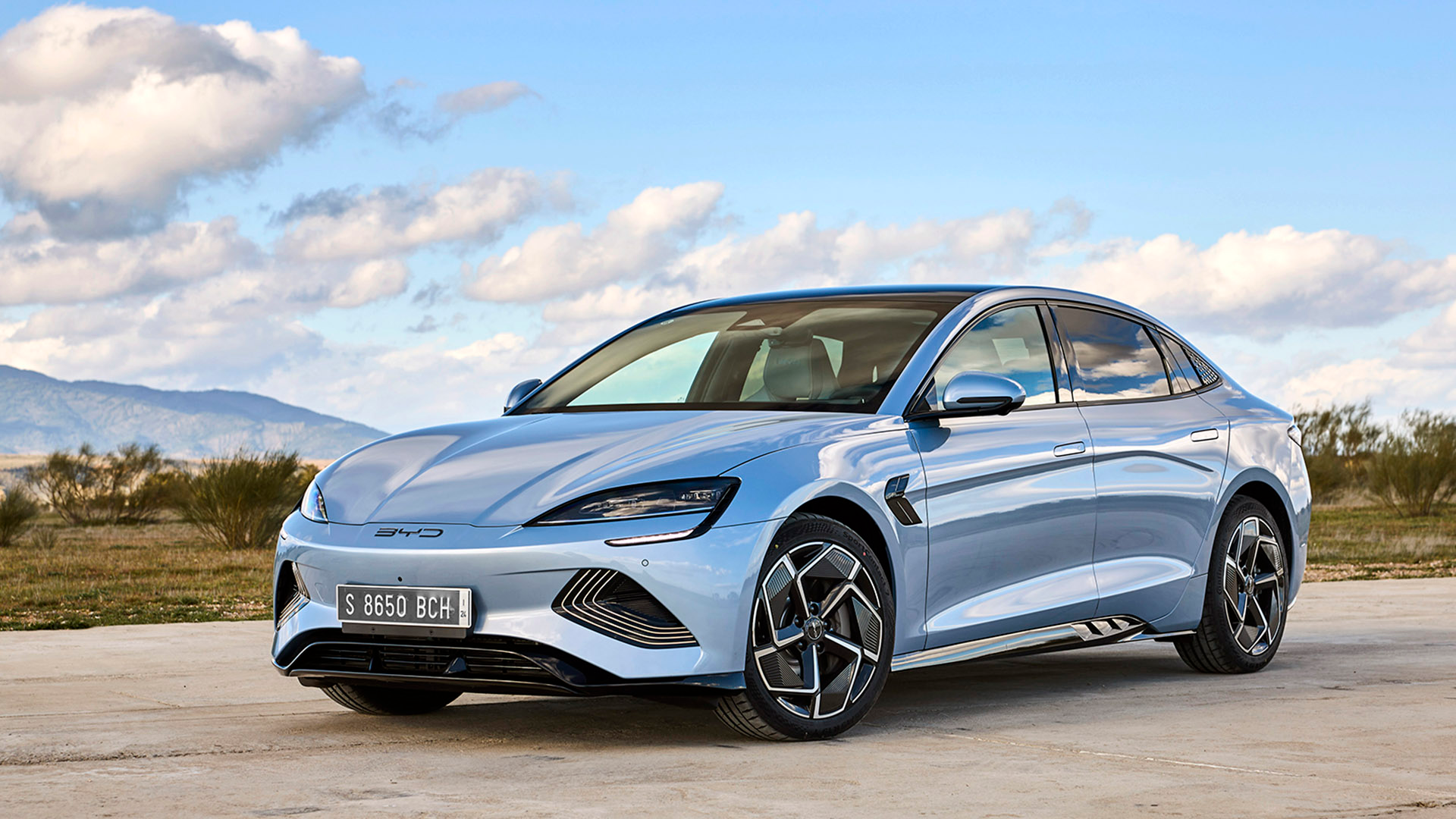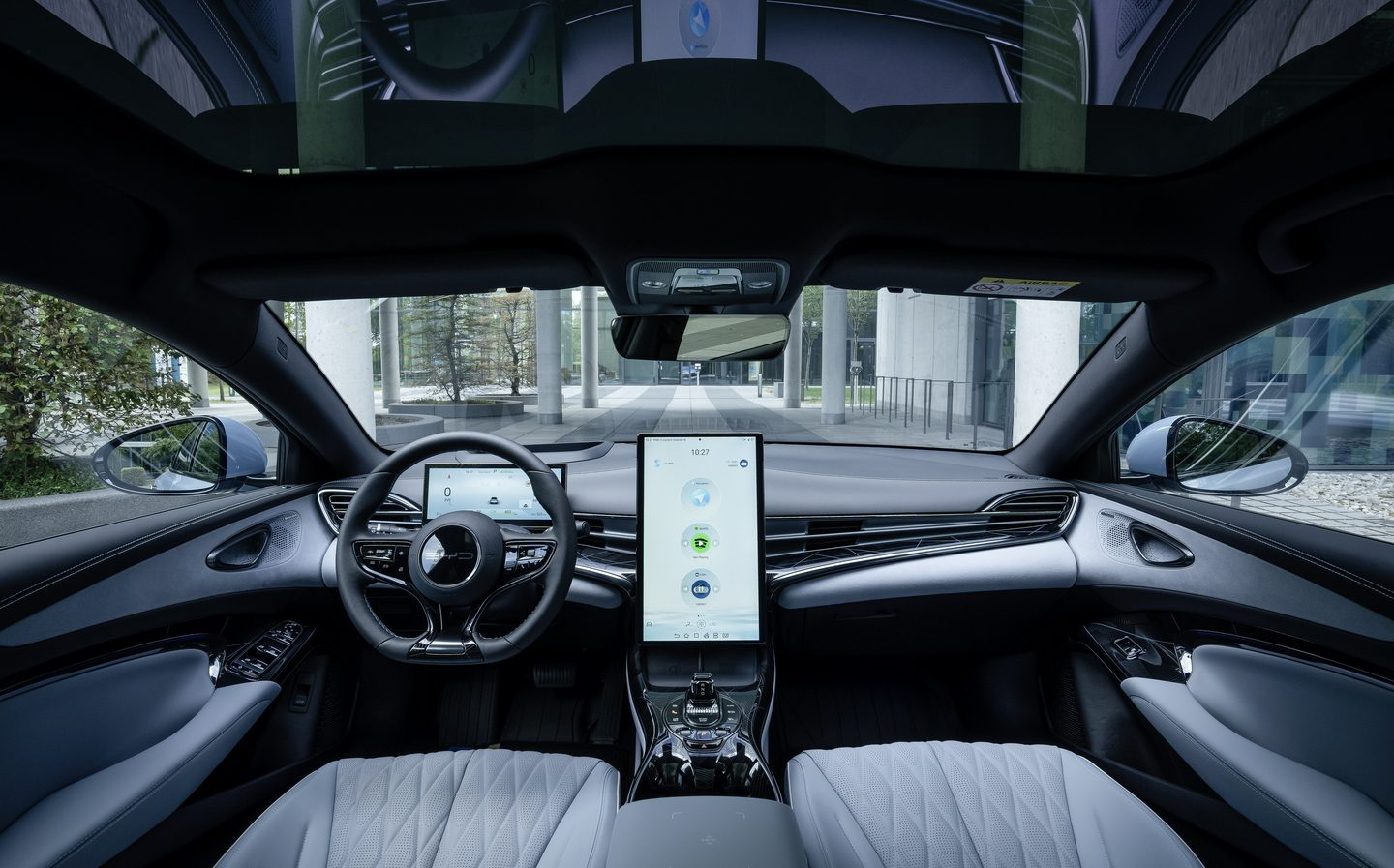BYD overtook Tesla as the world’s top seller of electric vehicles (EV) at the end of last year, crowning an extraordinary rise for the Chinese carmaker.
It delivered more fully electric cars than Tesla for the first time in the three-month period to December 31, and slashed the sales lead held by Elon Musk’s company over the year as a whole.
So how did a little-known Chinese battery maker grow so quickly to become Tesla’s biggest rival?
I know their cars will likely never be sold in the U.S., so I’ll probably never have the opportunity to sit in one, let alone buy one.
I would almost guarantee they will be sold in the USA at some point in the future.
- in 1957 the first Japanese car was sold in the USA, and now Toyota is a household name
- in 1986 the first Korean car was sold in the USA, and now Hyundai is a household name
- in 2023 the first Vietnamese car was sold in the USA, though you may not have heard of Vinfast yet.
The scale of production, and the ever increasing prices of cars in the USA continuously gives way to a lower cost import.
Sure but after WWII, we became close allies with Japan. We have been close allies with South Korea since the Korean War. And after Vietnam we have become relatively close with Vietnam.
China is a direct political and economic enemy to the United States. We won’t see a Chinese car brand in the US for at least several decades.
We won’t see a Chinese car brand in the US for at least several decades.
You’re aware that Volvo and Polestar are both own by Chinese auto giant 吉利 (Geely)?
MG is owned by a Chinese company too, right?
Yep, 上海汽车集团股份有限公司 (SAIC)
Ok I’m not talking about a holding company. Volvo is still produced in Sweden and the US for US market cars. Their automotive company is still headquartered in Sweden.
BYD is not. They’re produced in China, under a Chinese brand name.
May I ask the details of your working definition of a “Chinese car”?
The 2024 Lincoln Nautilus is manufactured in Changan Hangzhou assembly plant in China for sale in the USA. Is this not a Chinese car by your definition because its a Lincoln badge? source
The 2024 Buick Envision is manufactured at a GM assembly plant in Shanghai, China. Is this not a Chinese car by your definition because its a Buick badge on the vehicle? source
If nothing else, this should probably meet the definition :
The Polestar 2 (which company owned by Geely) is manufactured in Luqiao CMA Super Factory in Luqiao, Zhejiang, China and imported into the USA. source Or does it fail it because the corporate offices for Polestar are in Gothenburg, Sweden?
From what I understand, it’s safety regulations in the US preventing it. However, regulations in the EU are more likely to be able to see the BYD cars imported.
So, the US government is at a stagnant stand-still where they can’t get anything done and it’s been that way for about a decade now. Further, Republicans screech bloody murder about anything related to China. They wanted to ban Tik Tok but American companies stealing data is totally fine. US government putting backdoors into electronics is fine, it’s just bad when China does it. It’s not like the NSA has an entire wing dedicated to intercepting packages and inserting physical taps before the electronics even make it to customers doorsteps.
The point being, don’t expect US regulations to get worked on positively for allowing these kind of imports any time in the near future. US government is fucking broken and some folks in politics want it to be that way, because it gives one party carte blanche to sell the idea of authoritarianism as a solution.
From what I understand, it’s safety regulations in the US preventing it.
I can’t imagine Chinese automakers and specifically BYD are incapable of meeting USA safety regulations, there just has to be enough money in the USA market to make it worth it to put the extra effort in. The fact that Vinfast (from Vietnam) was able to pass the USA regulations with their new car for sale in the USA is good evidence meeting the safety measures is not only possible but not a monumental feat.
There’s too much profit in selling cars in the USA (and the rest of the world as a market continues to be saturated) for Chinese automakers to skip the USA forever.
Oh, I agree entirely that BYD is totally capable of producing vehicles that would pass US standards, I do apologize if I came off as suggesting otherwise.
It’s more that part of the reason that BYD is successful is that their cars are much more “basic” than US counterparts, where what used to be “luxuries” in the 1980s and 90s are now included in every new US vehicle. You can’t find a US vehicle with no power locks, no power windows, no computer dashboard, just buttons and knobs and an FM radio.
BYD is quite capable, but doing all those things to pass US safety standards would drastically increase the cost of their vehicles, and thus they would probably be making that line for the US only. It costs quite a bit to spin up manufacturing for just one country that’s different than the rest. Makes way more sense to stay streamlined and keep business in markets that accept them as-is.
The bigger point was that the US is unlikely to change its safety standards to accept them simply because the US government is totally broken and unable to even pass a budget without it being a total shitshow.
The failure here is on the part of the US government, not BYD.
It’s more that part of the reason that BYD is successful is that their cars are much more “basic” than US counterparts, where what used to be “luxuries” in the 1980s and 90s are now included in every new US vehicle. You can’t find a US vehicle with no power locks, no power windows, no computer dashboard, just buttons and knobs and an FM radio.
It sounds like you’re talking about BYD from about 10 years ago. Modern BYD cars rival western, Japanese and Korean brands sold in the USA today:
Here’s the BYD Seal which is the chief competitor to the Tesla Model 3 as an example:


Oh that looks pretty nice.
I mean, good. Fuck Tesla’s overpriced bullshit approach.
In Europe Teslas are actually cheaper than any equivalent electric car. Still wouldn’t want to be seen driving one







